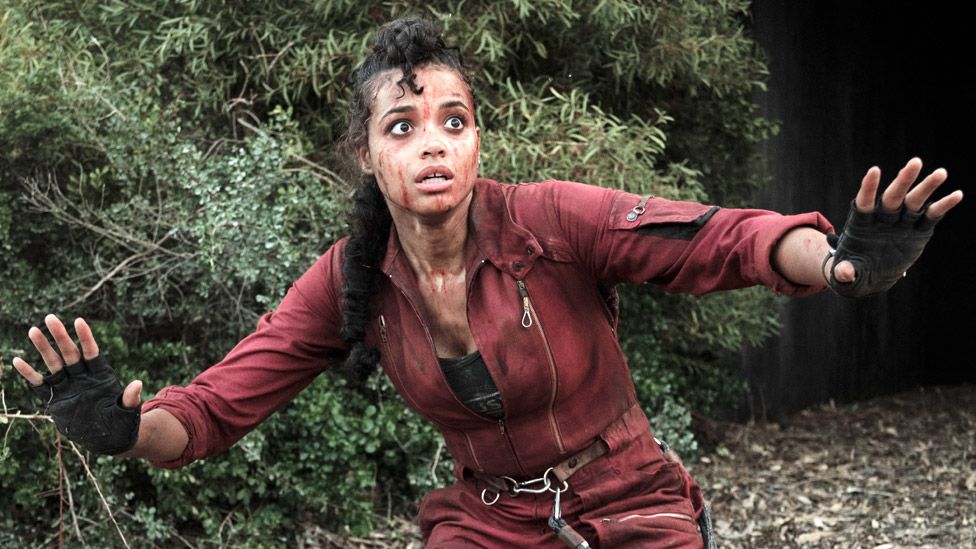Netflix: Why some viewers are unsubscribing and switching off

The new adaptation of Resident Evil is currently Netflix’s most popular series.
Subscribing to a streaming service can be a bit like ordering a take-away when you don’t know what you want to eat – paying the money and hoping what arrives is to your taste.
In recent months, fewer people have become willing to take their chances on the streaming menu, with Netflix losing nearly one million subscribers between April and July – although that was less than the two million it had feared.
As some find the shows less appetising and have their household budgets squeezed, and with Netflix’s Covid boom over and rivals trying to cook up a better offering, it seems our streaming tastes are changing.
One of Netflix’s lost subscribers is James Leiper, 26, from Huddersfield. “I bought a house last year, so I thought I needed to take control of what I was spending, and all the monthly subscriptions added up,” he says.
“At one point, I had four streaming services and it was a lot of money each month for things I barely used.
“Netflix was the first to go for me because there was only a handful of things on it I was watching.”
Mr Leiper says he is now more mindful of what he spends every month because of things like his electricity and gas bills going up.
“Five or six years ago, I’d watch everything on Netflix, and now there’s not so much and I’m not tempted by anything on there,” he explains.
An increasing number of British households feel the same way about streaming, with 700,000 fewer having at least one subscription compared with the start of the year, according to research firm Kantar.
Younger viewers have been the most likely to unsubscribe, with more under-24s turning to alternatives like BBC iPlayer or ITV Hub.
Netflix does remain the world’s most popular streaming service, but Tuesday’s figures are likely to show its biggest fall in subscriber numbers to date, three months after its first ever drop sent its share price plummeting.
Squid Game, Stranger Things and Bridgerton have given it huge hits, but the company’s recent strategy of churning out content has backfired, according to TV critic Hayley Campbell, co-host of the BBC Sounds Must Watch podcast.
“I think Netflix is losing numbers because it keeps pumping out endless shows without stopping to check if they’re good,” she explains.
She says Netflix’s “ratio of rubbish to brilliant is way off” – but thinks it’s now trying harder with shows like Heartstopper.
“Apple TV+ is the most interesting place for TV shows at the moment because it seems to be actually taking risks and investing money in making things like Shining Girls or Severance,” she says.
Amazon Prime attracted more new subscriptions in the UK than its rivals in the last three months, according to Kantar.
Campbell adds: “The most interesting things on Amazon Prime right now aren’t made by Amazon, they come from places like HBO.”
Another viewer, Matthew Rose, 26, from Devon, agrees: “Netflix has great shows like Stranger Things and Squid Game but there’s a lot of programmes that aren’t high quality.
“The brand doesn’t seem premium any more, and I only watch the big hitters because everyone’s discussing them.”
He only pays for Disney+, cancelling other streaming services like Spotify last year, and relying on free trials for new customers.








